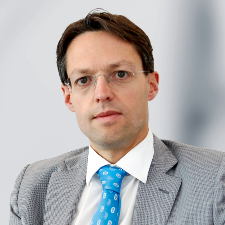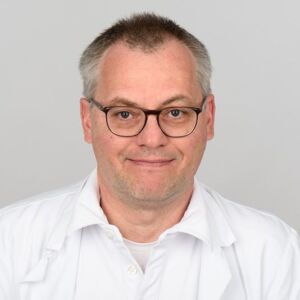Acute care
The acute treatment of a stroke is divided into three steps:
- Emergency care outside and inside the hospital.
- Acute treatment in a specialized monitoring ward (stroke unit).
- Follow-up treatment (rehabilitation), which begins in an acute hospital and continues in a clinic specializing in neurorehabilitation or an outpatient facility.
The University Hospital Zurich offers a comprehensive treatment concept for stroke patients:
- Acute diagnostics using CT (native, contrast medium, angiography, perfusion) or MRI (perfusion, diffusion, susceptibility weighted imaging)
- Emergency treatment using intravenous and intra-arterial thrombolysis and mechanical thrombectomy
- Monitoring (intermediate care) in the acute phase
- Root cause analysis for early optimization of secondary prevention
- Early start of rehabilitation to avoid or minimize permanent deficits
The duration of this treatment depends on the severity of the stroke and ranges from a few days (e.g. in the case of a short-term, transient circulatory disorder, TIA) to several months. Treatment in an acute hospital takes two weeks on average, but can also take several weeks in severe cases.

